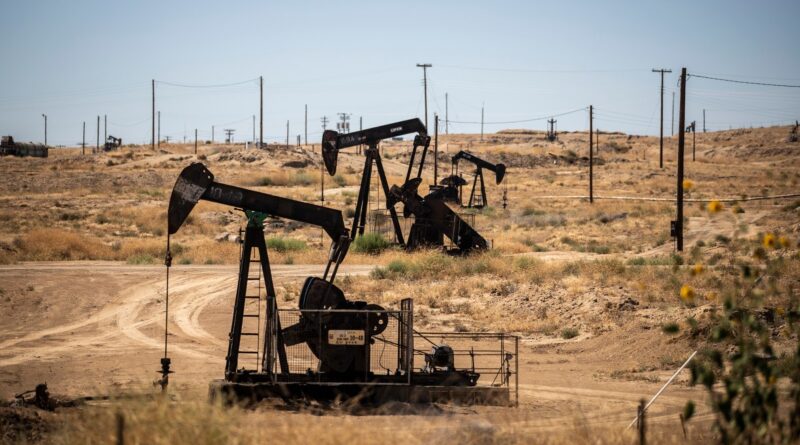Newsom Backs Energy Legislation Aimed at Balancing California Gas Prices
California’s Governor, Gavin Newsom from the Democratic party, recently gave his final nod to a series of energy legislation on Friday. This move is driven by the motivation to reduce energy prices and achieve a balanced supply of gas. It comes as a part of a radical shift in policy after years of implementing severe restrictions on the state’s oil and gas enterprises.
The new laws aim to ensure equilibrium in California’s gasoline market by providing support for more oil production in Kern County. Additionally, it offers incentives to oil refineries to sustain their operations. However, this renewed focus on oil and gas does not imply that California is halting its other projects, such as the ambitious high-speed rail agenda and the cap-and-trade program, according to a statement by Newsom’s office.
Interestingly, two substantial refineries in California, slated for shutdown as the state’s rigorous regulations take a toll. For years, these stiff regulations have sparked a wave of shutdowns across California. This situation illuminates the constant state of friction between the state’s oil industries and the Democratic leadership’s stringent regulatory approach.
One poignant instance from the proposed bills emphasizes the importance of the oil and gas sector in Kern County, while concurrently pledging the state’s dedication to safeguard the health of the public, environmental quality, and security, particularly within communities residing near these industrial operations.
Environmental advocates have consistently protested against drilling in Kern County, a region rich in oil. Newsom, in the past, has voiced his agreement with these sentiments. He staunchly supported a proposed legislation, along with renowned personalities and activists, in May 2024, that would impose limits on oil well drilling.
Democratic officials in the state have been unleashing measures to impose strict regulations on the oil and gas industry. This strategy aligns with the state’s broader objective of achieving net-zero emissions by 2045. In this scenario, two significant California oil refineries, notably Valero and Phillips 66, are in the process of shutting down within the year.
The potential ramification of these closures is worrisome. An analytical study predicts a drastic upsurge in California’s gas prices, potentially touching $8 per gallon mark. This prognosis is alarming for Californians who are already burdened with some of the most expensive gas tariffs nationwide and bear the country’s heftiest gas tax.
Governor Newsom asserted on Friday, ‘Heavy financial savings on energy costs are on the horizon for millions of Californians, and it doesn’t end there – we are stabilizing the state’s gasoline supply to prevent severe price surges at the petrol pumps and facilitating the construction of ample clean energy, essential to maintain lower bills.’
In October 2024, Newsom also approved a bill necessitating oil refineries to stock extra gas to prevent potential shortfalls. While these measures seem to focus on fossil fuels, Newsom’s administration hasn’t ignored the climate change aspects, taking a robust stance against actions undermining California’s efforts to promote electric vehicles (EV).
Upon President Donald Trump terminating California’s implicit national electric vehicle (EV) mandate in June, Newsom’s administration promptly filed a lawsuit against the Trump administration. This instance underlines California’s commitment to achieving its climate goals despite some national policies not favoring them.
In 2023, California launched a legal battle against major oil and gas firms operating within the state. The lawsuit was underpinned by accusations of these corporations contributing to climate change-induced damages throughout California.
Furthermore, one of the recently endorsed bills also prolongs California’s ‘cap-and-trade’ program, which has often been pointed out as a primary driver for refinery exodus from the state. To elaborate, this program necessitates that natural gas and coal power plants, among other industries, procure allowances to counterbalance emissions, as explained by the U.S. Energy Information Administration (EIA).
The reauthorization of the cap-and-trade program, along with the imminent closure of refineries, could potentially lead to a sharp elevation in gas prices for Californians, warn industry analysts. This potential rise in gas prices underlines the trade-off involved in trying to achieve environmental sustainability objectives.
On a promising note, Newsom’s office outlines that one of the newly enacted laws will secure a consistent funding source for the ‘high-speed rail.’ Consequently, this aims to bring the dream of a high-speed rail a step closer to reality.
While California’s high-speed rail project has been plagued by a significant overrun of budget and delays, public sentiment remains hopeful. Recent surveys reveal that numerous residents are optimistic about the project’s eventual completion despite the challenges faced.

